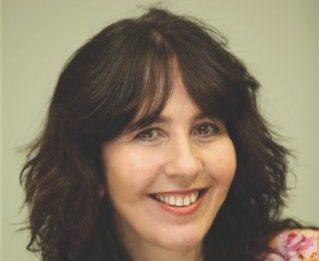click to dowload our latest edition
CLICK HERE TO SUBSCRIBE TO OUR NEWSLETTER


Published
5 years agoon
By
adminPETA KROST MAUNDER
The xenophobic violence in the streets of downtown Johannesburg has been compared to a war zone, and has spread to other areas in Gauteng like Alexandra. Though most of our community was safe, many of our fellow South Africans were caught in the fracas. But the truth is that no-one is really safe. All it takes is to be in the wrong place at the wrong time.
This is what community stalwart Larry Marks experienced when he was attacked in downtown Johannesburg after leaving the high court. (See page 1)
As my 13-year-old son said after hearing the news on the radio on Wednesday morning, “South Africa sounds like a comic book. I wouldn’t be surprised if the Joker came out and took responsibility for what’s going on.”
Neither would I, not least because of the dearth of real leadership in the country this week.
While this was going on in Gauteng, there was a national outcry about the number of women raped and/or murdered in this country, which is at crisis level.
In one week, we learnt of the brutal murders of University of Cape Town student Uyinene Mrwetyana and SA boxing champion Leighandre Jegels. The first was at the hands of a post office staff member, and the second an estranged police-officer boyfriend. Then, the body of a 14-year-old girl was found in the backyard of a home in Cape Town.
Rape and femicide aren’t new problems, nor have they suddenly escalated, but the number of recent high-profile attacks has created mass fear and protest. The biggest problem is that nothing seems to be done to stop this scourge. It’s a problem that has been allowed to fester to the point that nobody seems to have any control over it. For this reason, most women have long since stopped reporting rape to the police. In fact, often their trauma is only exacerbated by reporting it.
“This is a very dark period for us as a country,” said President Cyril Ramaphosa this week. “The assaults, rapes, and murders of South African women are a stain on our national conscience.”
He’s right about that, but talk is so cheap. Just how much cheaper is it than the lives of girls and women?
An adult woman is killed every three hours in South Africa, according to Africa Check. This is up from the figure regularly cited – one in every four hours – which was correct back in 2016. South Africa had the fourth highest interpersonal violence death rate out of 183 countries listed by the World Health Organization in 2016, according to Africa Check. (See page 4.)
However, the rape statistics have dropped slightly. It’s not true (at least not proven to be true) that there is a rape every four minutes, nor is it proven that we are the rape capital of the world (as is often cited).
However, the rape and murder of women in this country is beyond outrageous. What’s being done about it? What can I do to help? What can we do as a community?
I turned to my friend Penny Stein, who deals with rape survivors as she, the Angel Network, and other non-governmental organisations have made it their mission to do what they can to give comfort and respite to these survivors, some no more than five years old.
She told me of Matla A Bana, a haven for abused children started by Monique Strydom in the Western Cape. (Strydom survived a four-month hostage ordeal in 2000 at the hands of Al Qaeda terrorists in the Phillipines.) Penny told me that they use something like 1 800 rape comfort packs a month there, only for girls aged between five and 12. I was stymied! How can this be in our country?
While I was contemplating our country’s sickness, I read a post on Facebook by a former colleague who worked on mainstream newspapers with me. In one foul swoop, she trashed our country, talking about how despicable it was, and how there was no hope. Sitting in her ivory tower in the United States, so far from here, she felt she had the right to condemn us.
This made me angry. There she sat, having run away from the country, judging us – all of us. What’s she doing to make a difference?
I unfriended her, for what it’s worth. I don’t need to see those outside our country write us off.
Then what Penny said struck me. “It is not what you say, but what you do that counts,” she said. “We shouldn’t wait for government to do something, we need to be part of the solution.
“It’s not about putting your name to a million social-media petitions, they mean nothing. It’s about being an active citizen.”
This makes perfect sense to me – and fortunately to the likes of Penny, the Angel Network, and so many other unsung heroes and heroines out there in our community.
Let’s join them. If you can’t afford the time, find some other way of giving back. As she puts it, it’s not about petitions or even marches, it’s about helping those who really need it.
Uplift someone with kindness. Show our fellow South Africans and the world out there that we are made of better stuff. We are not barbarians!
We are phenomenal people who need to help with jobs, upliftment, and solutions. It’s not about judging. It’s not about complaining. It’s not about living in fear. It’s about doing something good, and making a real difference.
Only we can change our country. We can’t leave it to others. We need to take up the plight, and make the change we want.
Shabbat Shalom, and I wish all the nominees at the Absa Jewish Achiever Awards on Sunday night the best of luck.
